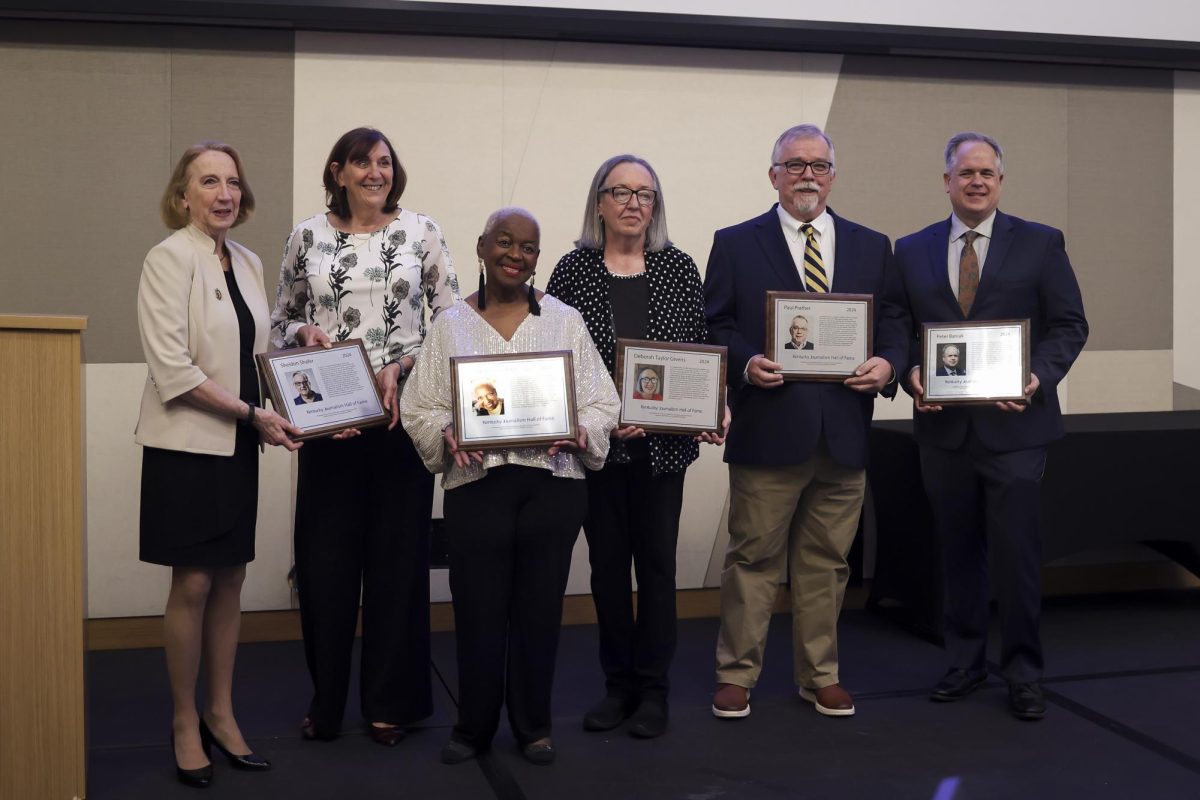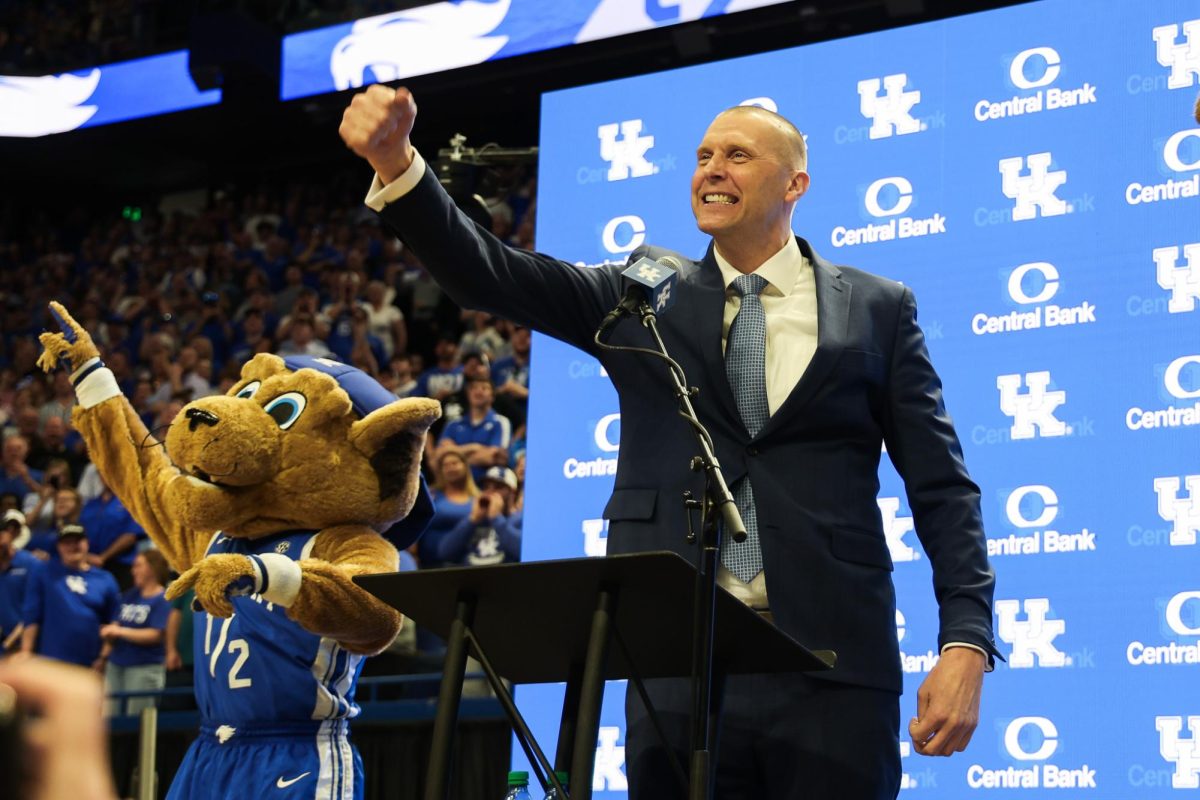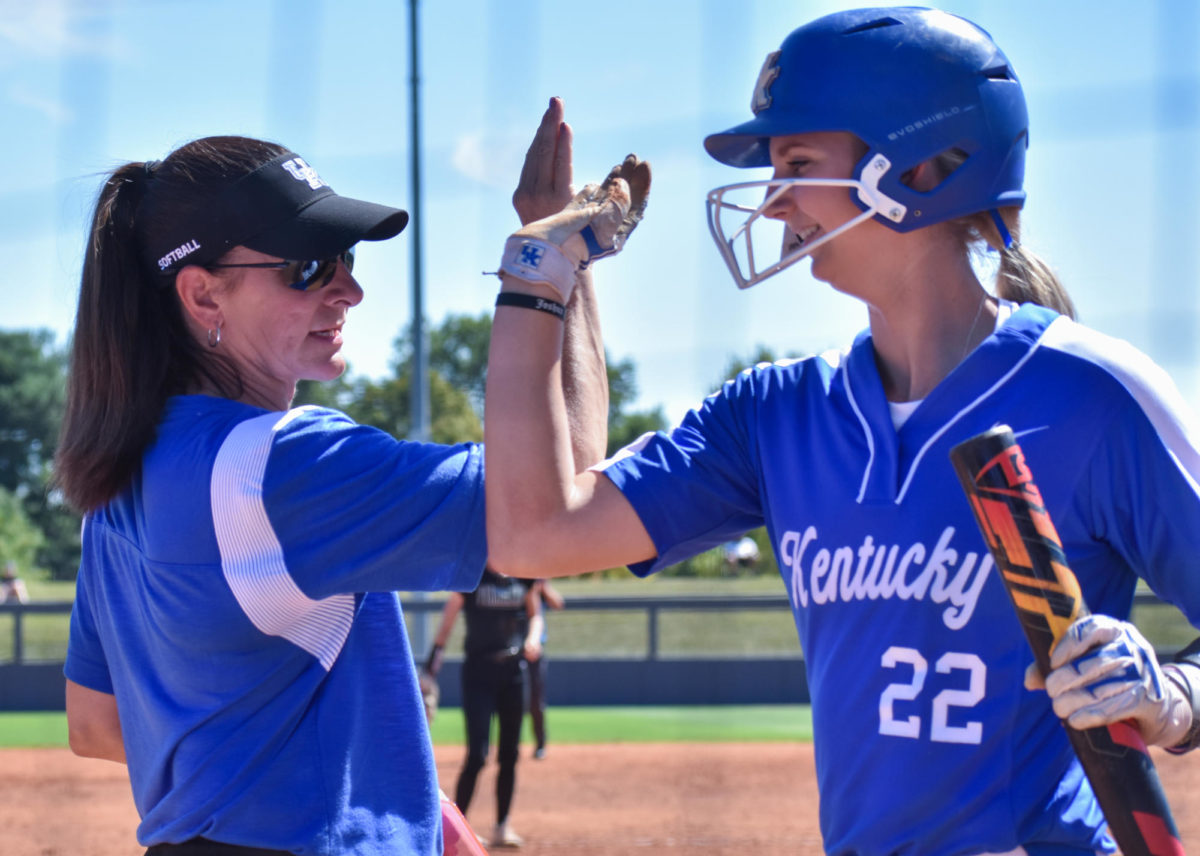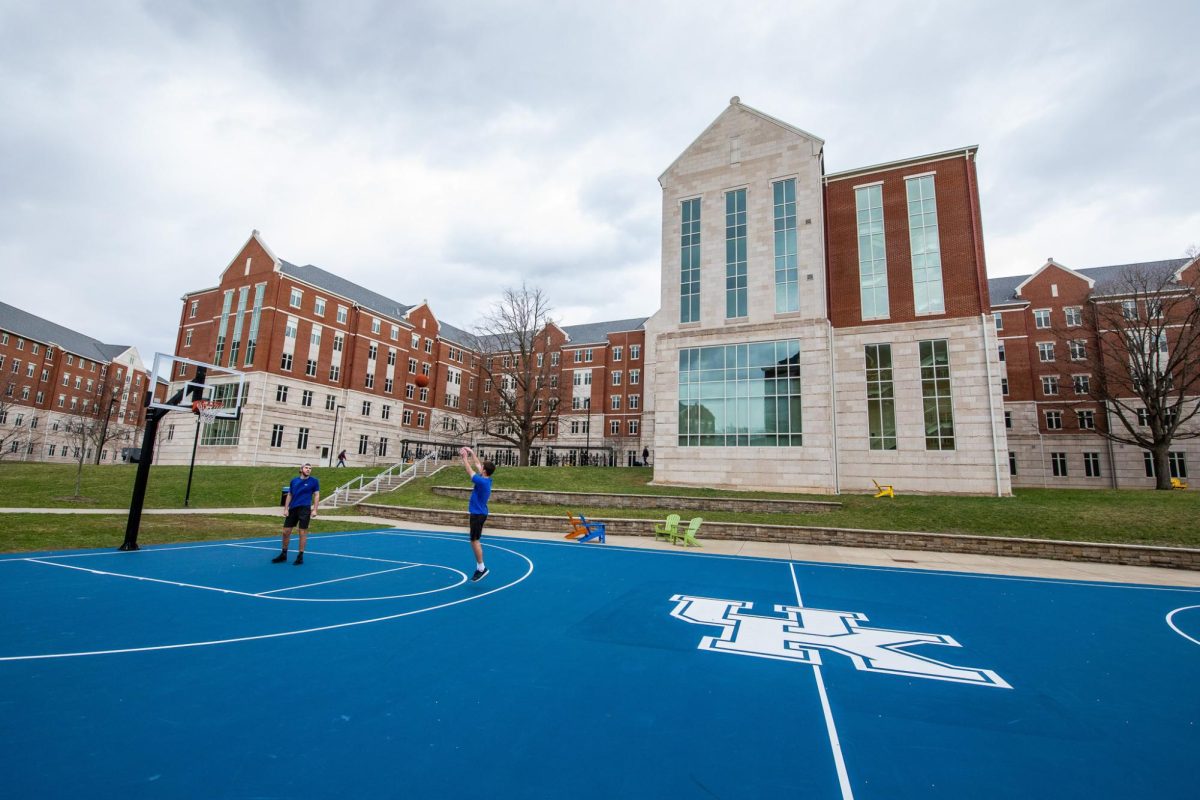Human Rights Group skeptics of UK Dining
October 8, 2013
Will Wright | Assistant News Editor
Words of skepticism and worry have permeated the discussions of the possible privatization of UK Dining Services.
One voice of this skepticism is United Students Against Sweatshops (USAS).
“Kentucky pride and the Kentucky Promise are things we can find in each other and in our dining services and in our land-grant university,” said geography junior Brock Meade, a member of USAS. “Those are things that are unique (to UK) and that’s something multi-national companies can’t understand.”
UK Dining Services generated about $2.4 million in revenue over expenses in the last fiscal year and an average of $260,000 net income for each of the five years prior, according to UK spokesman Jay Blanton.
But UK may not be in control of dining services on campus depending on the community and student responses the 13-person Dining Revitalization Committee receives.
The responses will be received by Nov. 7 according to the dining revitalization website.
Though the Request for Proposal (RFP) outlines commitments to employees and local food producers, some are concerned that a private company may not hold true to a contract.
For example, the RFP states that the 114 full-time employees on payroll as of Feb. 1, 2013 will keep their jobs and current salary. It also states the contractor’s proposal should show how the company would grow current spending levels for locally produced foods.
“The problem is that these companies break contracts every day all around the world,” Meade said.
He said some of the large dining service companies like Sodexo, ARAMARK and Compass Group are responsible for counts of workers’ rights violations, and he is worried that a private company that is concerned only with making money will violate their commitments at UK.
“When they take the management away from the university and give it to multi-national, contract-breaking, human rights-violating companies like Sodexo, Compass and ARAMARK, we’re compromising the well-being of the people who take up the dining services employment, the farmers … and the students, faculty and staff who eat at the (dining halls),” Meade said.
“You can’t keep a Kentucky Promise when you outsource yourself to a multi-national company. It just can’t happen.”
A termination clause in the RFP states that the Director of Purchasing may terminate the contract for non-performance. This clause is meant to protect the university if the controlling company were to fail to comply with the terms of the contract, or fail to provide “satisfactory quality of service,” as stated in the RFP.
Meade said even with the termination clause, it is rare for a university to go back to in-house services once they have privatized.
“I think having a fail-safe is worth putting in there,” Meade said. “But … there are only a few institutions that have privatized then de-privatize.”
One example of an institution that has done this is the University of Washington.
Garrett Strain, a national organizer with USAS, was organizing with UW when they cut ties with private dining service provider Sodexo that the university had previously contracted with.
“We had three sit-ins to get Sodexo off campus and we were ultimately successful,” Strain said.
The first sit-in was in the president’s office.
He said the organization spoke with many Sodexo employees and found that they were dissatisfied with the quality of work.
“Public universities uphold values of integrity and community and social justice,” Strain said. “Sodexo does not.”
Strain said that many multi-national dining service companies push down standards for workers. However, Blanton said the RFP contains protections for full-time Dining Services employees, and contemplates continuing, if not expanding, the number of student employees in dining services.
The RFP also states that a contractor is expected to develop partnerships with local food producers. It also “requires a strong commitment to … programs like Kentucky Proud.”
Despite this, some farmers are still skeptical.
“(Privatizing) would harm the Kentucky economy, and first and foremost it would hurt Kentucky farmers,” said Zarathustra Owens, of Owens Farm, a Kentucky Proud registered farm.
Though Owens said privatization could hurt some farmers, he said most farmers he knows are not worried about the possible privatization because they don’t see UK as a source in the first place.
“UK is not a market we seek out,” Owens said. “It’s (already) difficult to sell to UK. Adding a corporation in the middle would make it even harder.”
With these skepticisms in mind, USAS will continue to voice its concerns about the privatization of dining services.
USAS plans to hold an open forum at 6 p.m. Oct. 16 in the W.T. Young Library Auditorium.
“Only we can find a Kentucky Promise and Kentucky pride in ourselves, and each other and in our dining services,” Meade said. “We can’t find that in multi-national companies like Sodexo, Compass and ARAMARK.”























































































































































